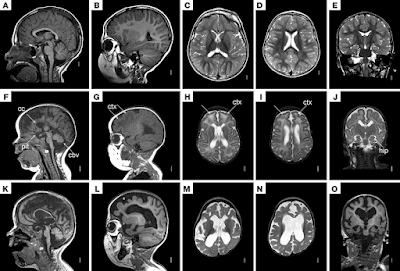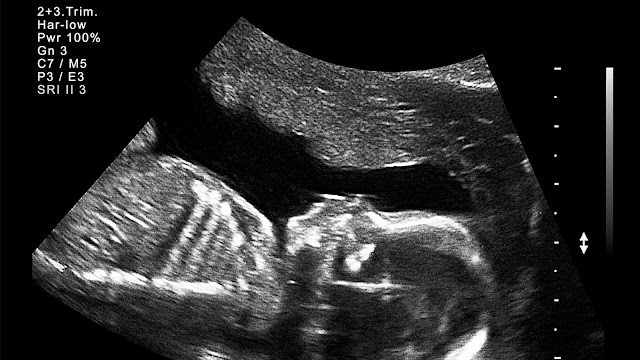Building muscle is a complex process that involves a combination of resistance training, proper nutrition, and adequate rest.
Among these factors, nutrition plays a crucial role, and within nutrition, protein is the most important macronutrient when it comes to muscle building. Protein is often referred to as the building block of muscle because it provides the essential amino acids necessary for muscle repair, growth, and maintenance. In this blog post, we will explore why protein is so important for muscle building, how much you need, the best sources of protein, and how to optimize your protein intake for maximum muscle growth.
Understanding Protein and Its Role in Muscle Building
Protein is a macronutrient made up of amino acids, which are organic compounds that combine to form proteins. There are 20 different amino acids, nine of which are considered essential because the body cannot produce them on its own. These essential amino acids must be obtained from dietary sources.
When you engage in resistance training, such as weight lifting or bodyweight exercises, you create micro-tears in your muscle fibers. The body responds to this stress by repairing and rebuilding the damaged muscle tissue, making it stronger and larger in the process. Protein plays a vital role in this process because the amino acids it provides are used to repair and build new muscle fibers.
The Importance of Protein Synthesis
Protein synthesis is the process by which the body creates new proteins. This process is essential for muscle growth, as it helps repair the muscle fibers that are damaged during exercise. When you consume protein, the body breaks it down into amino acids, which are then used to synthesize new proteins.
For muscle building to occur, protein synthesis must exceed protein breakdown. This is known as a positive protein balance, and it is achieved through a combination of resistance training and adequate protein intake. If protein breakdown exceeds protein synthesis, muscle loss can occur, which is why consuming enough protein is crucial for anyone looking to build or maintain muscle mass.
How Much Protein Do You Need for Muscle Building?
The amount of protein needed for muscle building varies depending on several factors, including age, gender, weight, activity level, and fitness goals. However, general guidelines can help you determine your protein needs.
1. Recommended Daily Allowance (RDA)
The RDA for protein is 0.8 grams of protein per kilogram of body weight (0.36 grams per pound). However, this recommendation is based on the minimum amount needed to prevent deficiency and is not sufficient for muscle building.
2. Protein Intake for Muscle Building
For those looking to build muscle, a higher protein intake is recommended. Research suggests that consuming between 1.2 to 2.2 grams of protein per kilogram of body weight (0.54 to 1 gram per pound) is optimal for muscle growth. This means that a 70 kg (154 lb) individual should aim for 84 to 154 grams of protein per day to support muscle building.
3. Protein Timing
While the total amount of protein consumed throughout the day is most important, the timing of protein intake can also play a role in muscle building. It is beneficial to distribute protein intake evenly across meals, with 20 to 40 grams of protein per meal. Consuming protein shortly after your workout can also enhance muscle recovery and growth, as this is when the body is most receptive to protein synthesis.
Best Sources of Protein for Muscle Building
Not all proteins are created equal. The quality of a protein source is determined by its amino acid profile, digestibility, and bioavailability. Here are some of the best protein sources for muscle building:
1. Animal-Based Protein Sources
- Lean Meats: Chicken, turkey, beef, and pork are excellent sources of high-quality protein. They provide all the essential amino acids needed for muscle repair and growth.
- Fish: Fish like salmon, tuna, and mackerel are rich in protein and omega-3 fatty acids, which have anti-inflammatory properties that can aid in muscle recovery.
- Eggs: Eggs are a complete protein source, meaning they contain all the essential amino acids. They are also rich in vitamins and minerals that support overall health.
- Dairy Products: Greek yogurt, cottage cheese, and milk are great sources of protein and also provide calcium, which is important for bone health.
2. Plant-Based Protein Sources
- Legumes: Beans, lentils, and chickpeas are excellent sources of protein, fiber, and other nutrients. They are particularly important for vegetarians and vegans.
- Quinoa: Quinoa is a complete protein and provides all nine essential amino acids. It is also rich in fiber and other important nutrients.
- Tofu and Tempeh: These soy-based products are high in protein and can be used in a variety of dishes.
- Nuts and Seeds: Almonds, walnuts, chia seeds, and flaxseeds are good sources of protein, healthy fats, and fiber.
Supplementing with Protein Powders
For some individuals, meeting their protein needs through whole foods alone can be challenging, especially if they have high protein requirements or lead a busy lifestyle. In such cases, protein supplements can be a convenient and effective way to ensure adequate protein intake.
1. Whey Protein
Whey protein is one of the most popular and effective protein supplements for muscle building. It is a complete protein, quickly absorbed by the body, and contains a high concentration of branched-chain amino acids (BCAAs), which are particularly beneficial for muscle recovery and growth.
2. Casein Protein
Casein is another dairy-derived protein that is digested more slowly than whey. This slow release of amino acids makes casein an excellent option for sustaining protein synthesis over a longer period, such as overnight.
3. Plant-Based Protein Powders
For those who are vegetarian, vegan, or lactose intolerant, plant-based protein powders such as pea, hemp, or brown rice protein can be good alternatives. While some plant-based proteins may be lower in certain essential amino acids, combining different plant proteins can help create a complete amino acid profile.
Balancing Protein with Other Nutrients
While protein is essential for muscle building, it's important to remember that it is only one part of a balanced diet. Carbohydrates and fats also play crucial roles in providing the energy needed for intense workouts and supporting overall health.
1. Carbohydrates
Carbohydrates are the body's primary source of energy. Consuming enough carbohydrates ensures that the protein you eat is used for muscle repair and growth rather than being converted into energy. Aim to consume complex carbohydrates such as whole grains, fruits, and vegetables to fuel your workouts and support recovery.
2. Fats
Healthy fats are important for hormone production, including testosterone, which plays a key role in muscle growth. Incorporate sources of healthy fats, such as avocados, nuts, seeds, and olive oil, into your diet to support overall health and muscle-building efforts.
Common Myths About Protein and Muscle Building
Several myths about protein intake and muscle building can lead to confusion. Let's address a few of the most common ones:
1. "More Protein Equals More Muscle"
While protein is crucial for muscle growth, consuming excessively high amounts does not necessarily lead to more muscle. The body can only use a certain amount of protein for muscle building, and excess protein may be stored as fat. It's important to consume protein within recommended ranges and focus on other factors like training and recovery.
2. "You Need Protein Supplements to Build Muscle"
While protein supplements can be convenient, they are not necessary for muscle building. Whole foods can provide all the protein you need. Supplements should be used to complement your diet, not replace whole food sources.
3. "You Must Eat Protein Immediately After a Workout"
While consuming protein after a workout can be beneficial, it doesn't need to happen immediately. The "anabolic window" is broader than previously thought, and as long as you consume protein within a few hours after your workout, you can still support muscle recovery and growth.
Conclusion
Protein is undeniably important for muscle building, but it's essential to approach it as part of a balanced diet and overall healthy lifestyle. By consuming the right amount of protein from high-quality sources, distributing it evenly throughout the day, and complementing it with adequate carbohydrates, fats, and proper training, you can optimize your muscle-building efforts. Whether you're a seasoned athlete or just starting on your fitness journey, understanding the role of protein in muscle growth will help you achieve your goals more effectively and sustainably.
If you like this blog do read my other blogs like

.jpeg)
.jpeg)
.jpeg)

.jpeg)
.jpeg)




.jpeg)
.jpeg)

0 Comments